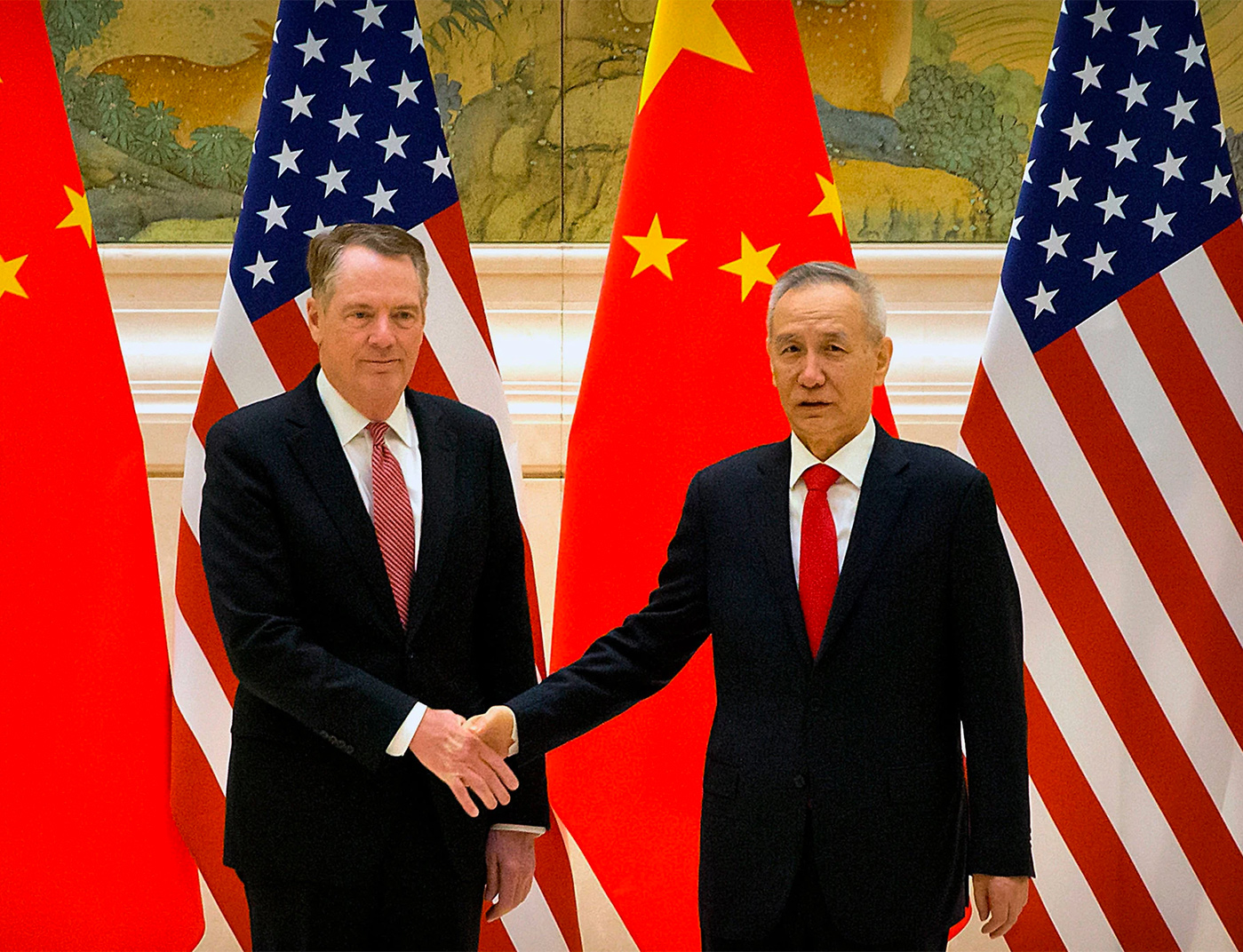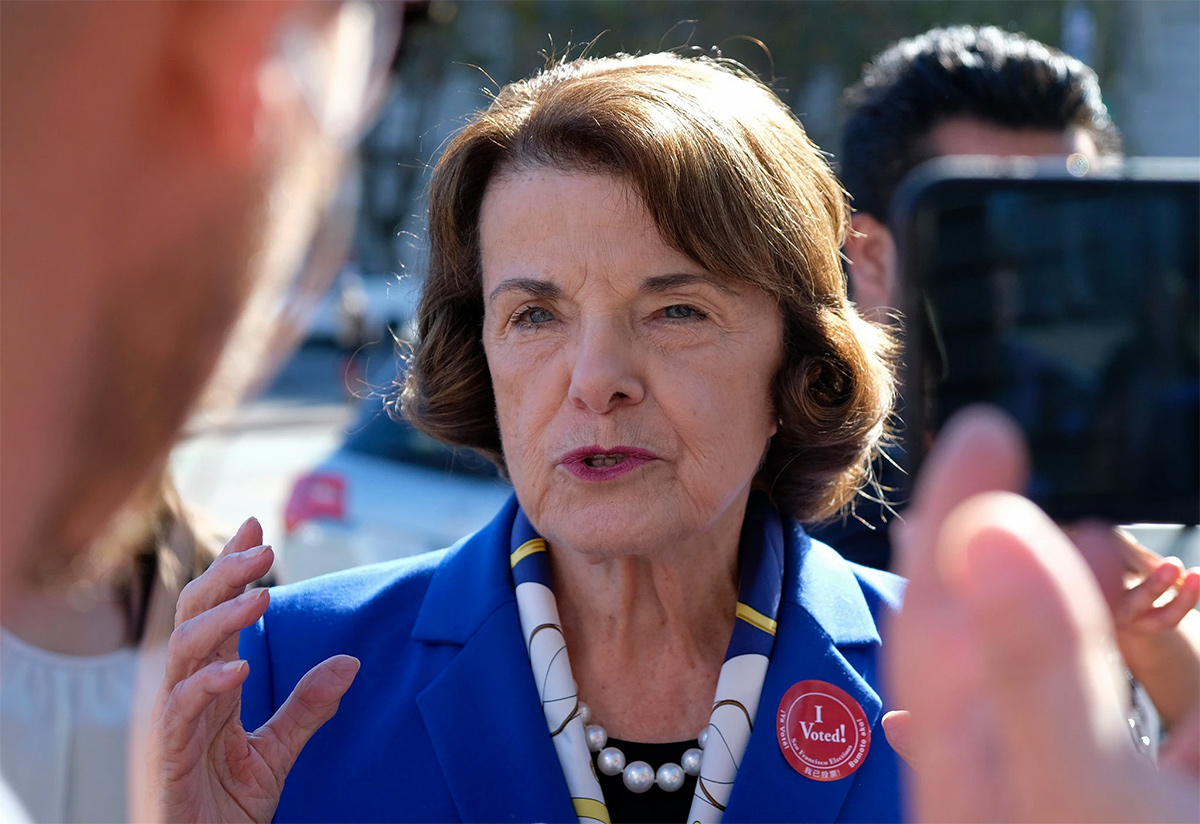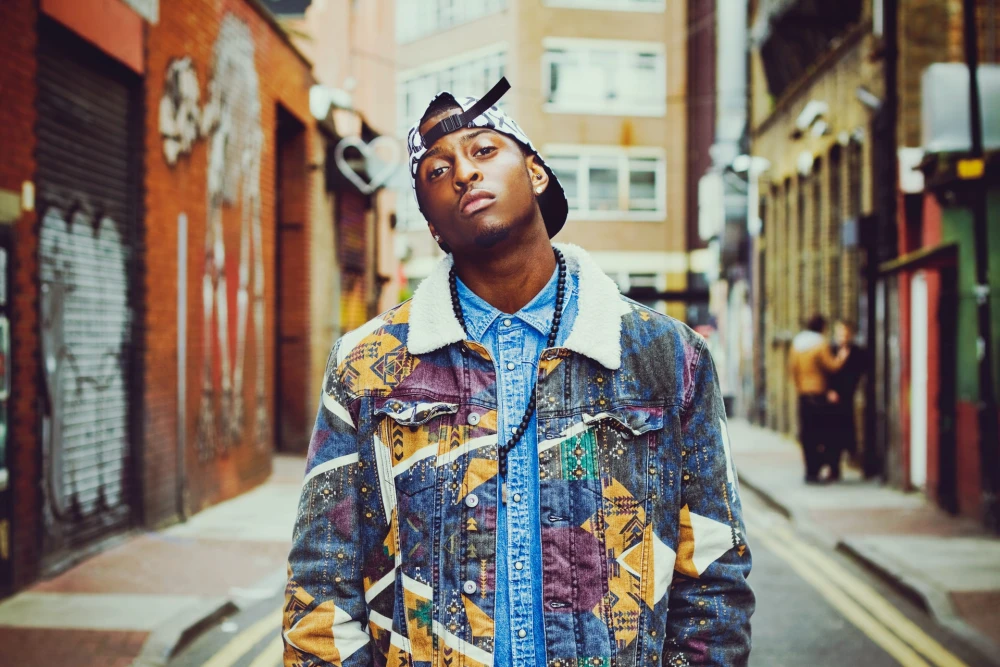Fashion
One of America’s biggest investment banks just humiliated Trump with a brutal fact check
After becoming the talk of the internet over the holidays, the viral Netflix sensation You has been confirmed for a second season, much to the delight of fans everywhere. The thriller series, which stars Gossip Girl’s Penn Badgley, follows Joe Goldberg—a psychopathic stalker-kidnapper-murderer who masquerades as a beguiling New York City bookstore manager and self-professed […]
After becoming the talk of the internet over the holidays, the viral Netflix sensation You has been confirmed for a second season, much to the delight of fans everywhere. The thriller series, which stars Gossip Girl’s Penn Badgley, follows Joe Goldberg—a psychopathic stalker-kidnapper-murderer who masquerades as a beguiling New York City bookstore manager and self-professed bibliophile.
After a chance encounter with a beautiful blonde writer named Beck (Elizabeth Lail), Joe stalks her and eventually wins her affection—but not without killing off people within her inner circle first.
The chilling tale left viewers with many unanswered questions by the end of its first season, but now that You has been renewed, the show’s makers and actors have planted the earliest seeds of what’s to come next for Joe Goldberg. Here’s what we know about You season 2 so far.
https://www.youtube.com/watch?v=cKOhno0IMpA
Season 2 is filming in Los Angeles
The series heads out west for season 2. Sera Gamble, the series’ showrunner, played it by the book; she told The Hollywood Reporter about the show’s change of location, and what it means for Joe’s character. “Joe Goldberg comes to L.A. and he is a die-hard New Yorker, so I can’t say that he comes to L.A. and he instantly falls in love with the place. At least at first glance, this is not Joe’s kind of town, which is delightful.”
People who watched the show will remember that Paco and his mother Claudia move to Los Angeles, so it’s possible that a Joe/Paco reunion may be in the works.
https://www.instagram.com/p/Bsg8nVijnmZ/
The book You is based on has a sequel
You was based on Caroline Kepnes’ novel of the same name. Kepnes wrote a sequel, Hidden Bodies, which tells the story of Joe moving to L.A. This would be a good read if you want to get the scoop ahead of the second season. Kepnes has also hinted that there might be a third book in the series, so stay tuned; she told a fan on Goodreads, “You’ll get more Joe eventually.”
Who’s been confirmed for the second season?
Elizabeth Lail sat down with Radio Times after the series premiered to Netflix to say that she will not be returning to the show—Joe did murder her character, after all. “I am sad to not continue that journey with him,” Lail said, referring to Badgley. “The unfortunate thing is, the woman doesn’t win in the end…and I’m so sick and tired of that.”
Despite the series making it clear that Joe murdered Beck after she found out about him stalking her and murdering her friends, fans got their hopes up. Joe’s ex, Candace (played by Ambyr Childers), not only appeared in flashbacks throughout the series, but also showed up alive and confronted Joe in the finale’s cliffhanger after he (supposedly) killed her. This made fans hope that Beck, by the same thought, might make an appearance in future seasons, even though Lail dispelled the rumor.
Ditto. It will be all the motivation I need for season 2. https://t.co/fy2hojauDG
— Penn Badgley (@PennBadgley) January 9, 2019
In theory, we’re not done with Dr. Nicky.
While Beck was forced by Joe to think about “what she did,” Beck wrote a novel that framed Dr. Nicky, her therapist—whom she cheated on Joe with—for her kidnapping in the hopes of obtaining her freedom. After Joe killed her, he published the novel and Dr. Nicky was arrested and sent to prison due to the incriminating manuscript.
“Dr. Nicky is in prison and he is ardently protesting his innocence,” Gamble told THR. “It’s too soon to say definitely whether John Stamos will return in season 2 but we have been talking a lot about the character and we’re excited to keep telling that story.”
Fashion
15 Beauty Brands You Probably Didn’t Realize You Can Get At Target
PARIS — French President Emmanuel Macron took first place, ahead of far-right leader Marine Le Pen, in the first round of France’s presidential election on Sunday, but he is on course for a far closer second-round clash than five years ago.
While polling suggests Macron should retain the presidency in two weeks, first round results show the incumbent can’t rest on his laurels.
Le Pen will be able to count on voters from far-right TV-pundit-turned-politician Eric Zemmour, who called on his supporters to back her on April 24. Meanwhile, leftist firebrand Jean-Luc Mélenchon fared better than expected and brings a heavy dose of uncertainty to the mix as his voters are a diverse bunch. Many are likely to abstain in the second round, while others will divide up between the French president and Le Pen.
“Politics is war without bloodshed
while war is politics with bloodshed.”
France’s repeat of the 2017 runoff confirms Macron’s and Le Pen’s own political analysis: That the divide between the left and the right is no longer relevant in France and has been replaced by an opposition between a mainstream bloc that is pro-European and open to the outside world on one side, and nationalists on the other. Both candidates scored higher than five years ago, leaving the traditional right and left in an even more shambolic state than before. Macron went from 24 percent in 2017 in the first round to 27.6 percent Sunday and Le Pen went from 21.3 percent to 23.4 percent.
The gap between them is higher than last time around, showing that Macron has managed to drum up the most votes despite controversies in the campaign’s last mile, including over the state’s overuse of consulting firms. But the far-right bloc — Marine Le Pen, Eric Zemmour and nationalist Nicolas Dupont-Aignan combined — garnered than 30 percent of the total vote.
I describe the “fun” parts of Only Yesterday because they’re wonderful, but also to make a point about the origin story we’ve learned about the mood of the ’20s. Looking back at Allen’s work from the vantage point of 1986, historian David M. Kennedy argued that the biggest failing of the book was its lack of historical depth: “Rarely did Allen forge an explanatory chain whose links ran back more deeply into the past than 1917.” And indeed, Allen seemed to blame World War I for every ash-covered carpet and scarred dining table.
Allen is also really good at describing parties—or, at least, the ones the middle class and upper class attended. The historian wrote about how women taking up smoking had “strewed the dinner table with their ashes, snatched a puff between the acts, invaded the masculine sanctity of the club car, and forced department stores to place ornamental ash-trays between the chairs in their women’s shoe departments.” In what I think may be the best passage in the book, Allen described the way 1920s partygoers stepped all over every previous genteel convention:

Anyway, let’s get to that fun. A very joyful book to read about the decade is Frederick Lewis Allen’s Only Yesterday: An Informal History of the 1920s, which Allen—a blueblood journalist and editor at Harper’s—published in 1931. The book chronicles all of the movement and motion that makes the decade sexy, and doesn’t seem to miss a fad.
The property, complete with a 30-seat screening room, a 100-seat amphitheater and a swimming pond with sandy beach and outdoor shower, was asking about $40 million, but J. Lo managed to make it hers for $28 million. As the Bronx native acquires a new home in California, she is trying to sell a gated compound.
Popular in human interest:
- Parents Are Fed Up With Their Kids’ Expensive Berry Habits
- 15 Mother’s Day Gifts for the Burned-Out Mom in Your Life
- Really Though, What Jeans Are in Style Now?
- Don’t Fall for Fertility Fearmongering About Trans Men
Perhaps by remembering the twenties merely as an enchanting series of novelties or the crude afterthought of a simpler past, we preserve the illusion of our own simple innocence,” mused historian Paula Fass in the introduction to her book The Damned and the Beautiful: American Youth in the 1920s.
Whether that means there will be a longer-term far-right alliance is an open question. Nicolas Bay and Gilbert Collard — two MEPs who left Le Pen’s party to join Zemmour — didn’t endorse a possible alliance with Le Pen, in case she wins the second round.

Zemmour, a 63-year-old TV pundit-turned-politician, was once tipped to come second behind Macron, back in October. But he plummeted spectacularly in the polls after suffering from a perceived lack of credibility as the Ukraine war started and former comments praising Russian President Vladimir Putin resurfaced. He scored a measly 7 percent. Despite their bitter and unrelenting fighting throughout the campaign, he swiftly endorsed Marine Le Pen.
“I have disagreements with Marine Le Pen,” Zemmour said at his concession speech Sunday, “but there is a man facing Marine Le Pen who has let in 2 million immigrants … who would therefore do worse if he were reelected — it is for this reason that I call on my voters to vote for Marine Le Pen.”
Fashion
The surprising benefits of ‘scary play’
Discrimination linked to weight can affect hiring, promotions and employees’ mental wellbeing. Why aren’t legal protections in place? French President Emmanuel Macron took first place, ahead of far-right leader Marine Le Pen, in the first round of France’s presidential election on Sunday, but he is on course for a far closer second-round clash than five years ago.
While polling suggests Macron should retain the presidency in two weeks, first round results show the incumbent can’t rest on his laurels.
Le Pen will be able to count on voters from far-right TV-pundit-turned-politician Eric Zemmour, who called on his supporters to back her on April 24. Meanwhile, leftist firebrand Jean-Luc Mélenchon fared better than expected and brings a heavy dose of uncertainty to the mix as his voters are a diverse bunch. Many are likely to abstain in the second round, while others will divide up between the French president and Le Pen.
“Politics is war without bloodshed
while war is politics with bloodshed.”
France’s repeat of the 2017 runoff confirms Macron’s and Le Pen’s own political analysis: That the divide between the left and the right is no longer relevant in France and has been replaced by an opposition between a mainstream bloc that is pro-European and open to the outside world on one side, and nationalists on the other. Both candidates scored higher than five years ago, leaving the traditional right and left in an even more shambolic state than before. Macron went from 24 percent in 2017 in the first round to 27.6 percent Sunday and Le Pen went from 21.3 percent to 23.4 percent.
The gap between them is higher than last time around, showing that Macron has managed to drum up the most votes despite controversies in the campaign’s last mile, including over the state’s overuse of consulting firms. But the far-right bloc — Marine Le Pen, Eric Zemmour and nationalist Nicolas Dupont-Aignan combined — garnered than 30 percent of the total vote.
I describe the “fun” parts of Only Yesterday because they’re wonderful, but also to make a point about the origin story we’ve learned about the mood of the ’20s. Looking back at Allen’s work from the vantage point of 1986, historian David M. Kennedy argued that the biggest failing of the book was its lack of historical depth: “Rarely did Allen forge an explanatory chain whose links ran back more deeply into the past than 1917.” And indeed, Allen seemed to blame World War I for every ash-covered carpet and scarred dining table.
Allen is also really good at describing parties—or, at least, the ones the middle class and upper class attended. The historian wrote about how women taking up smoking had “strewed the dinner table with their ashes, snatched a puff between the acts, invaded the masculine sanctity of the club car, and forced department stores to place ornamental ash-trays between the chairs in their women’s shoe departments.” In what I think may be the best passage in the book, Allen described the way 1920s partygoers stepped all over every previous genteel convention:

Anyway, let’s get to that fun. A very joyful book to read about the decade is Frederick Lewis Allen’s Only Yesterday: An Informal History of the 1920s, which Allen—a blueblood journalist and editor at Harper’s—published in 1931. The book chronicles all of the movement and motion that makes the decade sexy, and doesn’t seem to miss a fad.
The property, complete with a 30-seat screening room, a 100-seat amphitheater and a swimming pond with sandy beach and outdoor shower, was asking about $40 million, but J. Lo managed to make it hers for $28 million. As the Bronx native acquires a new home in California, she is trying to sell a gated compound.
Popular in human interest:
- Parents Are Fed Up With Their Kids’ Expensive Berry Habits
- 15 Mother’s Day Gifts for the Burned-Out Mom in Your Life
- Really Though, What Jeans Are in Style Now?
- Don’t Fall for Fertility Fearmongering About Trans Men
Perhaps by remembering the twenties merely as an enchanting series of novelties or the crude afterthought of a simpler past, we preserve the illusion of our own simple innocence,” mused historian Paula Fass in the introduction to her book The Damned and the Beautiful: American Youth in the 1920s.
Whether that means there will be a longer-term far-right alliance is an open question. Nicolas Bay and Gilbert Collard — two MEPs who left Le Pen’s party to join Zemmour — didn’t endorse a possible alliance with Le Pen, in case she wins the second round.

Zemmour, a 63-year-old TV pundit-turned-politician, was once tipped to come second behind Macron, back in October. But he plummeted spectacularly in the polls after suffering from a perceived lack of credibility as the Ukraine war started and former comments praising Russian President Vladimir Putin resurfaced. He scored a measly 7 percent. Despite their bitter and unrelenting fighting throughout the campaign, he swiftly endorsed Marine Le Pen.
“I have disagreements with Marine Le Pen,” Zemmour said at his concession speech Sunday, “but there is a man facing Marine Le Pen who has let in 2 million immigrants … who would therefore do worse if he were reelected — it is for this reason that I call on my voters to vote for Marine Le Pen.”
Fashion
Confusing $16 dental floss swimsuit roasted
PARIS — French President Emmanuel Macron took first place, ahead of far-right leader Marine Le Pen, in the first round of France’s presidential election on Sunday, but he is on course for a far closer second-round clash than five years ago.
While polling suggests Macron should retain the presidency in two weeks, first round results show the incumbent can’t rest on his laurels.
Le Pen will be able to count on voters from far-right TV-pundit-turned-politician Eric Zemmour, who called on his supporters to back her on April 24. Meanwhile, leftist firebrand Jean-Luc Mélenchon fared better than expected and brings a heavy dose of uncertainty to the mix as his voters are a diverse bunch. Many are likely to abstain in the second round, while others will divide up between the French president and Le Pen.
“Politics is war without bloodshed
while war is politics with bloodshed.”
France’s repeat of the 2017 runoff confirms Macron’s and Le Pen’s own political analysis: That the divide between the left and the right is no longer relevant in France and has been replaced by an opposition between a mainstream bloc that is pro-European and open to the outside world on one side, and nationalists on the other. Both candidates scored higher than five years ago, leaving the traditional right and left in an even more shambolic state than before. Macron went from 24 percent in 2017 in the first round to 27.6 percent Sunday and Le Pen went from 21.3 percent to 23.4 percent.
The gap between them is higher than last time around, showing that Macron has managed to drum up the most votes despite controversies in the campaign’s last mile, including over the state’s overuse of consulting firms. But the far-right bloc — Marine Le Pen, Eric Zemmour and nationalist Nicolas Dupont-Aignan combined — garnered than 30 percent of the total vote.
I describe the “fun” parts of Only Yesterday because they’re wonderful, but also to make a point about the origin story we’ve learned about the mood of the ’20s. Looking back at Allen’s work from the vantage point of 1986, historian David M. Kennedy argued that the biggest failing of the book was its lack of historical depth: “Rarely did Allen forge an explanatory chain whose links ran back more deeply into the past than 1917.” And indeed, Allen seemed to blame World War I for every ash-covered carpet and scarred dining table.
Allen is also really good at describing parties—or, at least, the ones the middle class and upper class attended. The historian wrote about how women taking up smoking had “strewed the dinner table with their ashes, snatched a puff between the acts, invaded the masculine sanctity of the club car, and forced department stores to place ornamental ash-trays between the chairs in their women’s shoe departments.” In what I think may be the best passage in the book, Allen described the way 1920s partygoers stepped all over every previous genteel convention:

Anyway, let’s get to that fun. A very joyful book to read about the decade is Frederick Lewis Allen’s Only Yesterday: An Informal History of the 1920s, which Allen—a blueblood journalist and editor at Harper’s—published in 1931. The book chronicles all of the movement and motion that makes the decade sexy, and doesn’t seem to miss a fad.
The property, complete with a 30-seat screening room, a 100-seat amphitheater and a swimming pond with sandy beach and outdoor shower, was asking about $40 million, but J. Lo managed to make it hers for $28 million. As the Bronx native acquires a new home in California, she is trying to sell a gated compound.
Popular in human interest:
- Parents Are Fed Up With Their Kids’ Expensive Berry Habits
- 15 Mother’s Day Gifts for the Burned-Out Mom in Your Life
- Really Though, What Jeans Are in Style Now?
- Don’t Fall for Fertility Fearmongering About Trans Men
Perhaps by remembering the twenties merely as an enchanting series of novelties or the crude afterthought of a simpler past, we preserve the illusion of our own simple innocence,” mused historian Paula Fass in the introduction to her book The Damned and the Beautiful: American Youth in the 1920s.
Whether that means there will be a longer-term far-right alliance is an open question. Nicolas Bay and Gilbert Collard — two MEPs who left Le Pen’s party to join Zemmour — didn’t endorse a possible alliance with Le Pen, in case she wins the second round.

Zemmour, a 63-year-old TV pundit-turned-politician, was once tipped to come second behind Macron, back in October. But he plummeted spectacularly in the polls after suffering from a perceived lack of credibility as the Ukraine war started and former comments praising Russian President Vladimir Putin resurfaced. He scored a measly 7 percent. Despite their bitter and unrelenting fighting throughout the campaign, he swiftly endorsed Marine Le Pen.
“I have disagreements with Marine Le Pen,” Zemmour said at his concession speech Sunday, “but there is a man facing Marine Le Pen who has let in 2 million immigrants … who would therefore do worse if he were reelected — it is for this reason that I call on my voters to vote for Marine Le Pen.”
-

 Europe7 months ago
Europe7 months agoRussia’s Shoigu accuses the West of seeking to expand the Ukraine war to the Asia-Pacific.
-

 Geopolitics & Foreign Policy6 months ago
Geopolitics & Foreign Policy6 months agoTurkey’s Erdogan says he may visit Egypt soon, discuss Gaza patients -media.
-

 America8 months ago
America8 months agoRepublican US House to hold first Biden impeachment inquiry hearing
-

 Geopolitics & Foreign Policy6 months ago
Geopolitics & Foreign Policy6 months agoRussia deploys new nuclear missile in Kaluga region – RIA
-

 Geopolitics & Foreign Policy6 months ago
Geopolitics & Foreign Policy6 months agoCeasefire takes hold in Gaza ahead of hostage release; aid enters enclave.
-

 Gender, Sexuality & Identity8 months ago
Gender, Sexuality & Identity8 months agoGreenland women ask Denmark for compensation over involuntary birth control.
-

 Global Issues & Cooperation8 months ago
Global Issues & Cooperation8 months agoHuman rights in Russia have ‘significantly deteriorated’ – UN expert.
-

 ECONOMY5 months ago
ECONOMY5 months agoFinland will sign a defense pact with the US.














